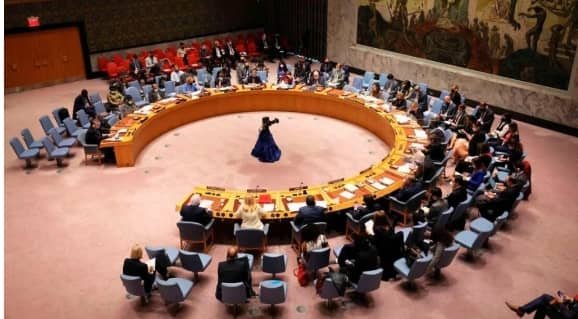The United Nations has issued a stark warning regarding the deteriorating state of South Sudan’s peace process.
The union pointed out to escalating political and subnational violence, stalled implementation of the Revitalized Peace Agreement (R-ARCSS) and frequent violations by all parties involved.
The UN Assistant Secretary-General for Africa Martha Pobee, addressed the Security Council, highlighting that recent military offensives, arbitrary arrests of opposition leaders, and persistent disinformation campaigns are eroding trust among the conflicting parties and could exacerbate ethnic tensions.
“There has been a continuous decline in the achievements previously made in the peace process,” Pobee noted. “Increasing violence and halted implementation of the Peace Agreement are reversing the progress we’ve seen.”
Pobee also underscored ongoing confrontations between the South Sudan People’s Defense Forces (SSPDF) and the Sudan People’s Liberation Movement-in-Opposition (SPLM-IO), which have included aerial bombardments and ground assaults since March.
Although the government has committed to holding elections in December 2026, Pobee emphasized that mere declarations are insufficient. She called for tangible actions in areas such as security sector reform, constitutional development, and electoral planning, alongside reviving joint institutions and fostering multiparty dialogue.
Numerous organizations, including the UN, African Union (AU), and Intergovernmental Authority on Development (IGAD), have consistently urged a ceasefire, the release of political prisoners, and a renewed commitment to the peace agreement, yet these recommendations have largely gone unaddressed.
The humanitarian situation in South Sudan remains dire, with 7.7 million people facing food insecurity and 83,000 at risk of famine, exacerbated by funding shortages, limited access to aid, and ongoing violence against aid workers. Enhanced governance and improved resource management are deemed essential for building resilience in the country.
Amb. Maj. Gen. (rtd) George Aggrey Owinow, the Interim Chairperson of the Reconstituted Joint Monitoring and Evaluation Commission (RJMEC), reiterated the concerns, noting a further decline since the extension of the Transitional Period (February 2025 – February 2027) and the postponement of elections.
Owinow called for the government to take urgent steps to de-escalate violence, release detainees, and reaffirm its commitment to implementing the peace deal. He also emphasized the need for urgent regional diplomatic efforts and swift advancement of constitutional and electoral processes. RJMEC has demanded that both the SSPDF and SPLM-IO cease hostilities and adhere to the ceasefire agreement.
Despite these challenges, Owinow highlighted that the R-ARCSS has brought relative peace since 2018 and remains the only feasible path to stability. He urged the Security Council to leverage its influence to prevent a relapse into conflict and to protect the precarious peace that has been established.
